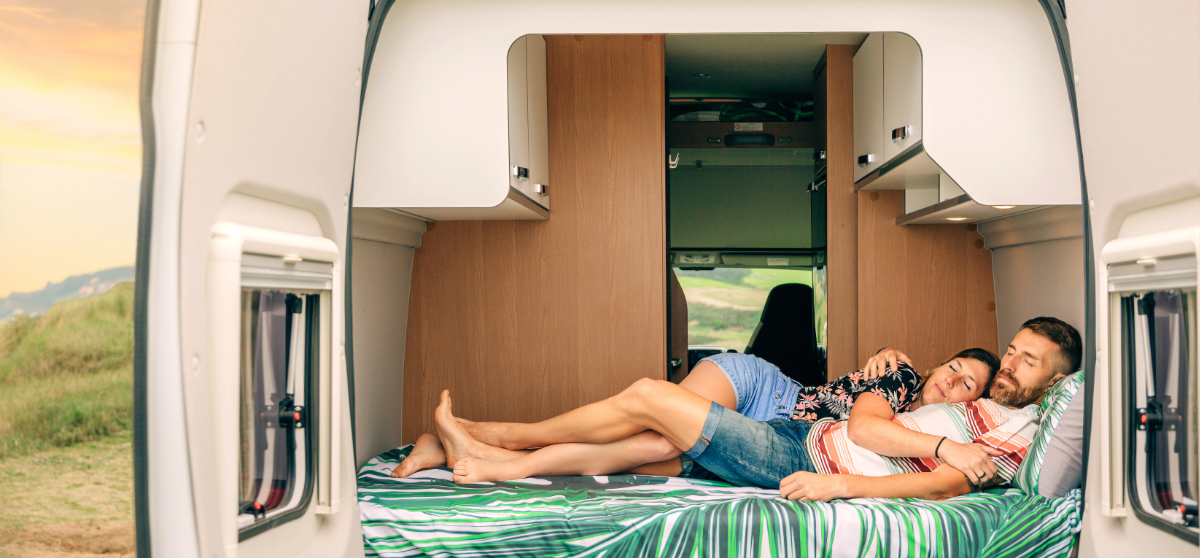What Will Full-Timing Cost You
A Breakdown of Full-Time Living Expenses
Image Caption:
You’ve camped before. You love the adventure, discovery, fun, getting outdoors and making new friends. Now that you are retired or considering it, no matter what your age is, you may be thinking about taking to the road full time. Fear of the unknown rears its ugly head, though. Will we like it? Will we regret selling our house? Most importantly, can we afford it?
Having been on the road for more than five years, we can answer the last question. It’s up to you. Sure there is a minimum amount of money necessary to live comfortably, but you’re the person who can best set that amount.
Traveling full time while still owning a house is an expensive proposition unless you lease it out for an amount that will cover the mortgage, property taxes, insurance, and, in some cases, association fees. If your residence is paid off, you’ll still have some obligations, such as property taxes, homeowner’s insurance and repairs. If you don’t have a family member to take care of the house in your absence, you will want to be wise and protect your investment with a property manager. Even with that, concerns about the safety, condition of the home and changes in the neighborhood may remain. In our case, selling the house and practically everything in it was the only solution. We never looked back. A brand new, carefree life lay ahead.
Is Full-Time RV living cheaper than staying home?
Full time RV living need not be expensive. In fact, as we found out, it can be cheaper than staying home. If you have to finance a big diesel-pusher, you’ll definitely disagree, but if you sell your property and buy an RV outright with the proceeds, your expenses may be as follows:
Cost of Fuel
Some folks travel thousands of miles a month. In the beginning, there can be a tendency to race through the states, perhaps a leftover from being stuck in the rat race. Some elect to stay a month or more in each place and cut their fuel bill by at least half. Depending on distances traveled and gas mileage, what you spend on fuel will vary greatly. We average 10.5 miles per gallon pulling our trailer a lot, so our monthly fuel budget has been our biggest expense (about $700 per month), because we have children from coast to coast who we like to visit.
Cost of Food
If you cook in the RV, your expenses should be the same as in your home. Many choose to eat out, and that’s when the food bill triples or quadruples. When we are in transit, usually once a week, we eat at fast-food places. We especially like splitting Subway’s $5 foot-long sandwich that is available in many places we visit. We also use free bonus restaurant meals from our credit card usage. Our monthly food bill averages $450.
Cost of Campgrounds
Dry camping in a Bureau of Land Management (BLM) or Forest Service campground can range from free to $12 a day, or you can set yourself down in a national park for $25 (there are discounts for seniors with the senior pass). We stayed in a BLM dispersed camping space in the Quartzsite area for a week free of charge, and camped in Zion, Bryce Canyon and Capital Reef National Parks for 11 nights for a grand total of just $72. If you must have a full hook up campground every night, expect to pay anywhere from $45 to $60 a night, and up to $125 for resorts with all the amenities. Alternating between dry camping for four days until the grey-water tank is on red and then moving to full hook ups has allowed us to stay within our budget of $600 a month. You decide what your comfort level is and what you can afford.
Cost of Insurance
Other major additional expenses are RV, truck or towing insurance; maintenance costs such as tires that wear out fast with heavy loads and occasional bad roads; propane, which runs about $25 every three months, plus firewood ($1 a stick); and toll roads, which we set our GPS to avoid. All other expenses, such as health insurance, phone and Internet, medication, health and beauty aids, cost basically the same as when we lived in a house.
Since our fuel bill is high, we economize and keep track of all our expenses by paying everything above $10 with our Discover Card, which we pay off in full every month, and get free restaurant cards. We buy used books and DVDs.
The Perks of Living on the Road
We hike and enjoy nature, attend free concerts and lectures and take advantage of senior prices at museums and many other entertainment venues.
While full-timing, you can choose the life you feel you can afford. Spend $150 a month for fuel or $1,000. Spend nothing boondocking, or $250 to $300 in the Corps of Engineers, Forest Service or National Parks campsites, or thousands a month in fancy resorts. Spend $450 to $500 eating in the rig or splurge on restaurants where the sky’s the limit.
Whatever you decide, you make it happen. A carefree, stress-free life awaits.





